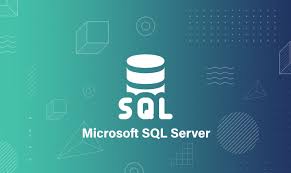Courses Details
SQL Server Training Course Details

About SQL Server Training
Today we cannot imagine our life, our business without proper database. We always like to analysis data and get report from data so that they can manage their life and their organization in proper order. That means that there is highly demand of database. database is not only important for storing the data in proper order .Beside this there is also numbers of application where it pays the big roles to perform efficiently. here are some point that he mention there
- Easy access to data
- Easy integration and reporting the data
- Easy sharing of information.
- Powerful analysis of information.
- Massive Scale
- Ready for future.
SQL Server Training Curriculum
INTRODUCTION
• What is a Database?
• Database Architectures
• SQL Server 2016 Architecture
• Editions of SQL Server 2016
• Tools and utilities in SQL Server 2016
SQL-THE STRUCTURED QUERY LANGUAGE
• Types of SQL Commands
SQL SERVER MANAGEMENT STUDIO
• A Quick Overview of SSMS
• Query Editor
DATABASE DESIGN AND CREATION
• Defining a Database
• System Databases And User Databases
o master
o tempdb
o model
o msdb
• Creating User-defined Databases
• Working with Databases
• Working with FileGroups
WORKING WITH TABLES
• Types of Tables
• Data Types
• Creating tables using navigation
• Creating tables using Command
• Altering table structure
• Inserting, Updating and Deleting Data
• Difference between delete and truncate
• Creating table with schemas and File groups
DATA INTEGRITY
• What is Data Integrity?
• Types of Integrity Constraints
• Using Check, Unique, Primary Key and Foreign Key Constraints
• Enabling and Disabling Constraints
• Rules and Defaults
Day 2
RETRIEVING DATA
• SELECT Statement
• FROM and WHERE Clauses
• Using GROUP BY Clause
• Using HAVING Clause
• ORDER BY Clause
• Creating a Copy Table
JOINS
What is a Join?
Types of Joins
• Inner Join
• Outer Join
• Cross Join
• Self Join
• Joining more than 2 tables
RETRIEVING DATA – ADVANCED
• What is a sub query?
• Types of Sub Queries
• Working with CORRELATED SUBQUERIES
• Working with Common Table Expressions
BUILT-IN FUNCTIONS
• Aggregate Functions
• Numeric Functions
• Date and Time Functions
• String Functions
• Program Flow Functions
• Coalesce
• IIF
OPERATORS
• LIKE
• IN
• ANY
• BETWEEN
• UNION, UNION ALL
• EXISTS
• INTERSECT
• EXCEPT
VIEWS
• What is a View?
• Creating and using Views
• Using With Check Option
• Using Schema Binding
• Materialized Views
INTRODUCTION to T-SQL programming
• Fundamentals
• Declaring and initializing variables
Flow Elements
• The IF ELSE Flow Element
• The WHILE Flow Element
• Case Statement
TRANSACTIONS
• ACID properties
• Types of Transactions
• Using Commit, Rollback and Save Commands
STORED PROCEDURES
• Definition
• Types of Stored Procedures
• Creating a Stored Procedure
• Input and Output Parameters
• Executing a Stored Procedure
• Error Handling in Stored Procedures
• Debugging a Stored Procedure
TRIGGERS
• Definition
• Types of Triggers
• DDL Triggers
• DML Triggers
• CREATE TRIGGER Syntax for DML Triggers
• Deleted and Inserted Logical Tables
• Creating DDL Triggers
• DDL Database-Level Events
• Dropping a DDL Trigger
• INSTEAD OF Triggers
• Setting Triggering Order
Day 4
USER-DEFINED FUNCTIONS
• What is a UDF?
• Creating and using UDF’s
• UDF’s returning a table
CURSORS
• What is a Cursor?
• Types of Cursors
• Statements in the usage of a Cursor
• @@FETCH_STATUS
XML INTEGRATION
• XML Datatype
• Using XML Schema collections
• Retrieve Related Data as XML
• Transform XML data into Relational Data
WORKING WITH INDEXES
• Index Uses
• Types of Indexes
• Creating Indexes
• Index Fragmentation
• Tuning Indexes
CONCURRENCY
• Isolation Levels
• The READ UNCOMMITTED Isolation Level
• The READ COMMITTED Isolation Level
• The REPEATABLE READ Isolation Level
• The SERIALIZABLE Isolation Level
SECURITY
• Security Basics
• Authentication Modes
• Creating a login
• Providing permissions on a database
• Providing permissions on database objects
BACKUP & RESTORE
• Types Of Backup
o Full database backup
o Differential backup
o Transaction log backup
o Restoring Database
MISCELLANEOUS TOPICS
o Partitioned Tables
o CTE’s